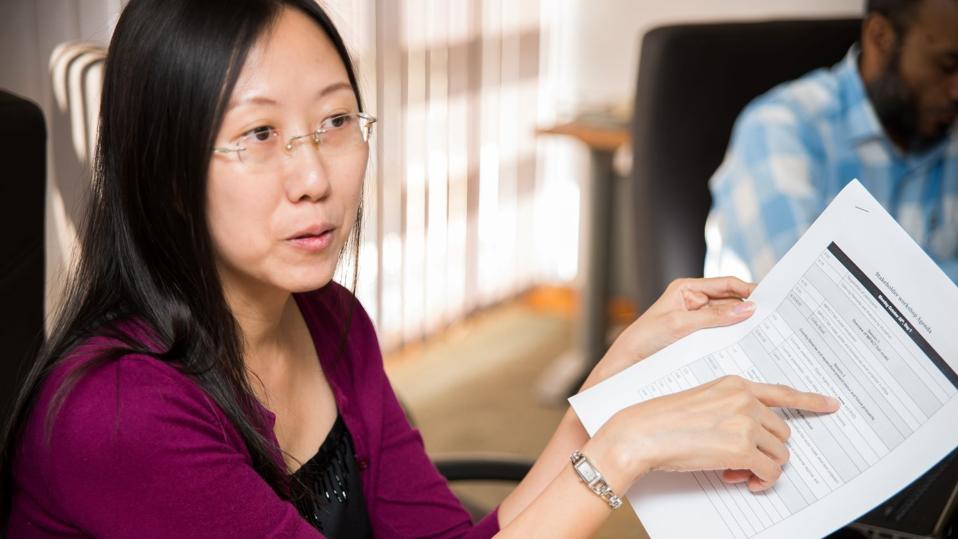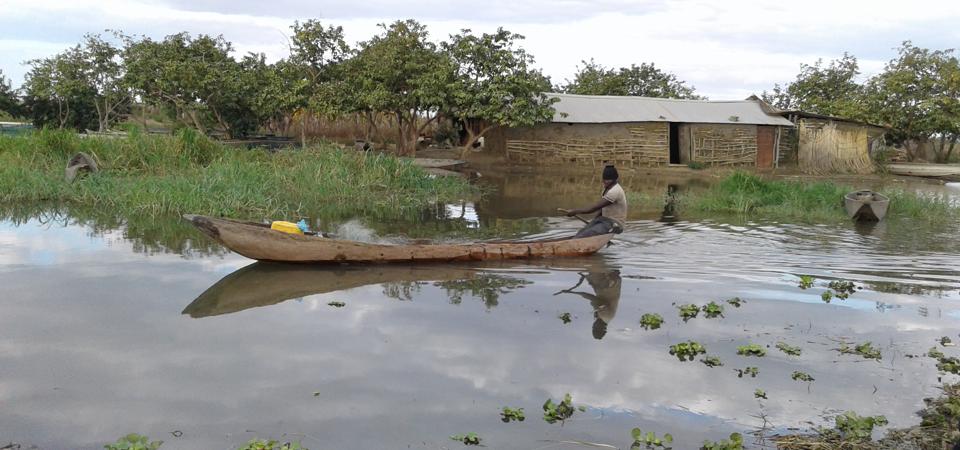
Fisheries researcher Chin Yee Chan builds models to predict the future of fish.
Chin Yee Chan/WorldFishFisheries researcher Chin Yee Chan grew up in a Malaysian city surrounded by hills, but now she is helping to conduct foresight research into fisheries: how fish consumption and production trends can predict whether communities will have enough to eat in future.
Chan, based at international research NGO WorldFish, says her research focuses on fish foresight modeling, by qantitative assessments of fish production and consumption patterns at global, regional, and national levels.
“Foresight research helps decision-makers to explore plausible future scenarios to prioritize investments and policy interventions that align with the organization’s objectives and key Sustainable Development Goals (SDG),” she says.
Chan says this includes mapping aquatic food production and consumption patterns under future climatic conditions, even as society, economies and technology change over time.
“We collaborate with the International Food Policy Research Institute (IFPRI) to calibrate and improve the International Model for Policy Analysis of Agricultural Commodities and Trade (IMPACT) in Africa and the ASEAN (south-east Asian) region,” she says adding that she also works with partners from Australian National University to build country-level fish sector models in order to help find policy implications of interest to policymakers in developing countries.
“During the modeling process, we often face multifaceted challenges and sometimes need to spend long hours to find solutions to emerging data issues, however, we feel rewarded when we receive recognition after the output is shared publicly,” Chan says.
MORE FOR YOU
From Hills and Health to Future Fish
Chan grew up in Ipoh, Malaysia, a city surrounded by hills and since a young age, she’s been interested in inclusive and people-centered research.
After graduating from Universiti Sains Malaysia, she worked for the Nationwide Children’s Hospital in the United States for eight years, where she received extensive training in both clinical and translational research, and biochemical research.
“I also volunteered as an interpreter in the Ohio State Penitentiary and Ohio Department of Rehabilitation and Correction for two years,” she said.
In 2013, Chan returned to Malaysia and embarked on a new research journey in WorldFish where she now contributes to the organization's mission of strengthening livelihoods and enhancing food and nutrition security by improving fisheries and aquaculture in Asian and African countries.

A fisherman in Zambia
Chin Yee Chan / WorldFishOver the years, she’s traveled far and wide, conducting workshops and training sessions with communities across the world and she’s one of many female scientists working with fishing communities.
For example, Agustinha Duarte, a researcher from East Timor, is working on a cookbook to help Timorese make the most of local varieties.
In Africa, Nigerian researcher Kafayat Adetoun Fakoya is one of a huge number of scientists studying some of the world's smallest fishing industries, which, collectively, have a big impact.
The Link LonkMay 17, 2021 at 01:00AM
https://ift.tt/3op9O7I
Meet The Malaysian Scientist Predicting The Future Of Fish - Forbes
https://ift.tt/35JkYuc
Fish
No comments:
Post a Comment